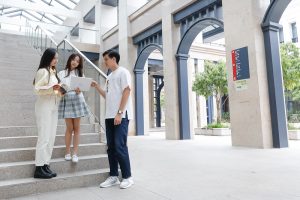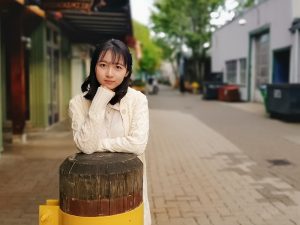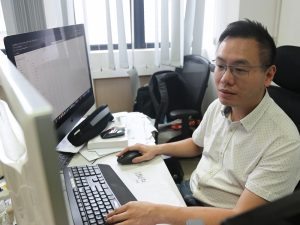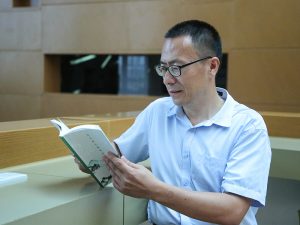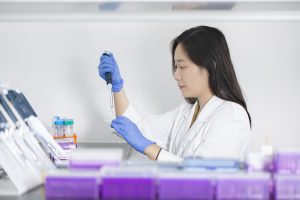While attending university, apart from studying hard and consolidating professional knowledge, students should also acquire tools that can help them apply their expertise. Skills such as programming, language, logical thinking, and communication, will greatly enhance students’ competitiveness. In this issue, we have interviewed a number of faculty members and students about their strategies for learning useful skills in college.
The Trend of Studying Programming
With the advent of data science, programming is now considered one of the must-have skills for the 21st century. Programming is not a required course for Alisa Wan, a fourth-year English major in the Honours College, but she has a special interest in the area of natural language processing in computer science. As a language studies student, she wants to learn how to enable computers to understand human language, so she took a course in machine learning. Because she lacked basic information, Wan admitted that she encountered many difficulties when she first learned programming. To make up for her lack of knowledge, she consulted her teacher after class and also attended a mathematics course related to programming. ‘Nowadays, many companies see programming skills as a bonus in the recruitment process, which shows that programming is highly valued,’ says Wan.
She now has a basic understanding of two programming languages, namely Python and C++, and she plans to apply for a postgraduate programme in programming with the aim of combining her undergraduate knowledge of English with her programming skills.
U Leong Hou, interim head of UM’s Centre for Data Science and associate professor in the Department of Computer and Information Science, teaches artificial intelligence applications in the Master of Science in Data Science programme. He believes that data science has a wide range of applications, and more and more students from different disciplines want to learn programming. However, because of the lack of background knowledge, even though the threshold is lower than before, some people may not understand the meaning of the code when they first encounter it. Prof U stresses the need to have a strong motivation for learning programming. ‘For example, when you find out that you can use Python to do things much faster than using an Excel spreadsheet, you are naturally motivated to master this skill because it can greatly enhance learning and productivity,’ says Prof U.
Studying Arts Benefits Scientific Research and Teaching
Associate Professor Chen Xiuping has been a pharmacological researcher for nearly 20 years and has published more than 150 articles in Science Citation Index (SCI) journals. In addition to traditional Chinese medicine, Prof Chen is also an avid student of traditional Chinese culture, in particular Song poetry, and he has spent three years writing a book on the essence of poetry from the Song dynasty. The book contains over 200 poems from among hundreds of thousands of poems from this period. Besides learning about Song poetry, Prof Chen also occasionally scribbles a few lines of poetry when he feels inspired. While he was a student of clinical medicine during his undergraduate years, he believes that people should have a wide range of interests and that there is no divide between the arts and sciences. ‘Although I was a science student, my interest in the arts was not affected at all. My love for literature has enhanced my ability to express myself,’ says Prof Chen. ‘When teaching Chinese medicine, interesting expressions and wording can make obscure theories easier to understand, and an occasional poem from the Tang and Song dynasties can also arouse students’ interest and empathy.’
Prof Chen also stresses that the study of Song poetry and the study of Chinese medicine have one thing in common, namely, the possibility of finding an original and innovative approach. ‘The study of Tang poetry has been going on for hundreds of years, and it is very difficult to find any innovative point of study,’ says Prof Chen. ‘However, Song poetry has a huge number of poets and few researchers, so I have a lot of room for development and research. Similar to the study of Chinese medicine, we should not blindly follow the trend and lose our direction in our research.’
Sally Yuan, a third-year economics major in the Honours College, lived in South Africa for more than two years when she was a child because of her parents’ jobs. ‘Before I went to South Africa, I did not know any English at all, not even the alphabet,’ says Yuan. ‘I was fortunate enough to study in an all-English environment at a prime time for learning a language, and I gained a solid foundation in English.’ At the end of last year, she took the TOEFL exam and scored a high mark of 109 points.
As a student who opted for science in high school, Yuen agrees with Prof Chen that there is no distinction between arts and science in language learning. She believes that students who want to improve their English language skills should not be bound by stereotypes, and that they can do so by reading English articles that they are interested in. She also advises students to read original English articles or teaching materials as much as possible to learn professional knowledge and improve their English skills.
Acquiring Knowledge Outside of Your Major
After graduating from the Chinese University of Hong Kong with a PhD degree in biomedical sciences, Cheang Wai San became a UM Macao Fellow in 2015 and has been actively engaged in scientific research. With over ten research papers published in international journals under the guidance of senior teaching staff at UM, she was promoted to the position of assistant professor in the Institute of Chinese Medical Sciences in 2019. Prof Cheang believes that students might not know what they are interested in when they first enter university. She suggests that new students should actively participate in different activities to cultivate their interests, broaden their networks, develop good communication and leadership skills, and strengthen their language skills. She cites her own experience in college as an example: ‘I participated in debate contests back then, which helped me hone my critical thinking and communication skills. They are very helpful to me in my current teaching job.’
In her opinion, whether studying arts or science subjects, students should master computer technology and simple mathematics to develop logical thinking skills. ‘When I was in college, I not only studied biomedical sciences, but also acquired knowledge related to website system construction. Later on, when I was a PhD student, I helped my mentor build his laboratory website,’ says Prof Cheang. ‘Learn as much as you can outside of your major during your undergraduate years. There is always a chance that you can use it!’
Source: My UM ISSUE 97


